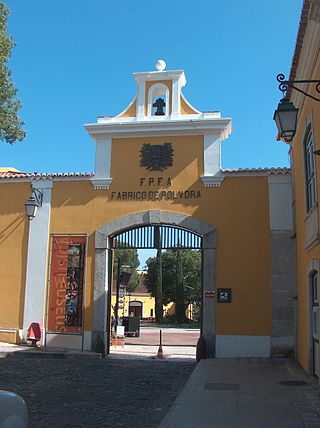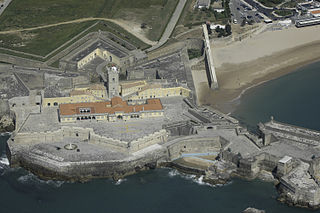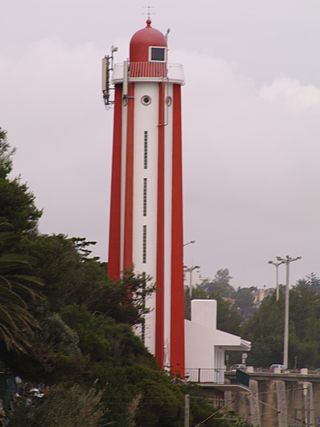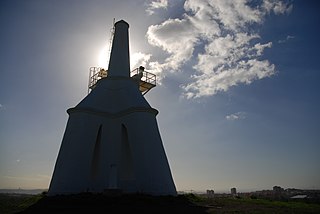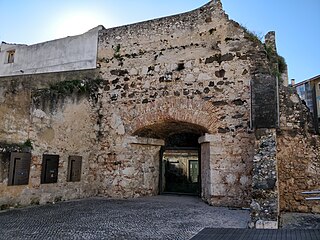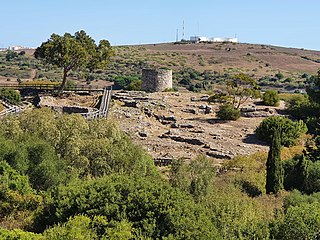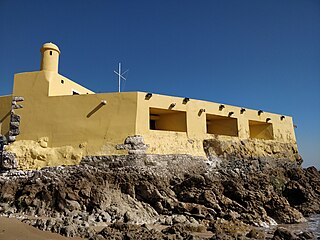10 Sights in Oeiras, Portugal (with Map and Images)
Legend
Welcome to your journey through the most beautiful sights in Oeiras, Portugal! Whether you want to discover the city's historical treasures or experience its modern highlights, you'll find everything your heart desires here. Be inspired by our selection and plan your unforgettable adventure in Oeiras. Dive into the diversity of this fascinating city and discover everything it has to offer.
Activities in Oeiras1. Barcarena Gunpowder Factory Museum
The Barcarena Gunpowder Factory is a park and one of the great centers of culture in Oeiras. The area around this former armaments factory stands out for its academic, scientific and artistic activities. A very inviting space with its exhibitions and leisure spaces.
2. Forte de São Julião da Barra
The Fort of São Julião da Barra is the largest and most complete military defence complex in the Vauban style remaining in Portugal. It is located in São Julião da Barra, on the point of São Gião, in the parish of Oeiras e São Julião da Barra, Paço de Arcos e Caxias, Oeiras Municipality, Lisbon District. Considered in the past as the most important maritime fortification in the country, it had originally, together with the Fort of São Lourenço do Bugio, the role of controlling access to the port of Lisbon. It is currently the official residence of the Portuguese Minister of National Defence.
3. Farol do Bugio

The Bugio Lighthouse is situated on an island in the estuary of the River Tagus on the Fort of São Lourenço do Bugio, about ten kilometres west of Lisbon. It falls under the municipality of Oeiras in Lisbon District.
4. Farol da Gibalta Barra do Sul Range
The Gibalta Lighthouse is an active Portuguese lighthouse located at Oeiras, about 10 km west of the centre of Lisbon. It is a white cylindrical tower with dome and red veins, with illumination being supplied by a red fluorescent light. It was rebuilt in 1954 following a landslide which destroyed the old light and killed ten people on a passing train.
5. Farol da Mama
The Mama lighthouse is located in the Carnaxide Sierra of the municipality of Oeiras, in Lisbon District, Portugal. It is built on a round hill, known as the Mama Sul, next to a Geodesic landmark. The Mama Lighthouse is about 4 km inland, northwest of Belém, and combines with the Esteiro and Gibalta lighthouses to indicate the alignment of the southern entrance to the Port of Lisbon.
6. Farol de São Julião
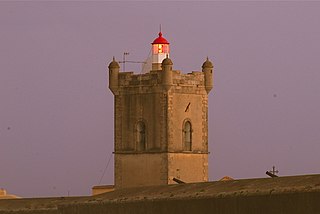
The São Julião Lighthouse is located in the fort of the same name, which is the largest sea defence structure in Portugal and is situated on a headland on the north bank of the River Tagus estuary in Oeiras, Lisbon District. It is a square masonry tower and the lantern is painted white, with a red dome.
7. Fornos da Cal
Five circular lime kilns made of stone, dating back to the late Middle Ages, were located in Paço de Arcos, Oeiras, Portugal. Four kilns were demolished or incorporated into surrounding buildings and their gardens, but one was purchased by the municipality in 1989. Archaeological work began in 1994 and the kiln was opened to the public in September 2004. The kilns are classified by the Portuguese Government as a Property of Public Interest.
Wikipedia: Lime kilns, Oeiras, Portugal (EN), Heritage Website Sipa, Heritage Website
8. Capela de Nossa Senhora da Boa Viagem
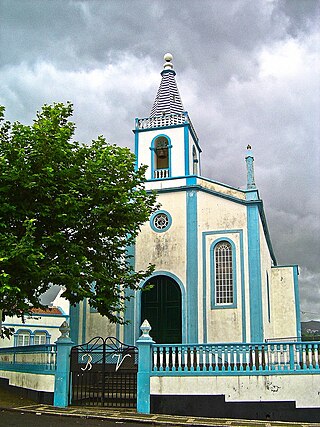
The Chapel of Nossa Senhora da Boa Viagem, or Church of Campo Santo, is a Portuguese chapel located on the island of Terceira, in the city of Angra do Heroísmo, part of the Diocese of Angra do Heroísmo.
9. Castro de Leceia
The Castro de Leceia or Leceia Eneolithic Station is an archeological site of the Castro culture located in the Portuguese civil parish of Barcarena in the municipality of Oeiras. The area was first occupied during the end of the Neolithic and throughout the Chalcolithic, being abandoned somewhere between the end of the 4th and the beginning of the 3rd millennium BCE. The Castro was first dug and reported in 1878 by Carlos Ribeiro, who presented his results to the Lisbon Academy of Sciences in what may be considered the first monograph dedicated to a pre-historical Portuguese settlement. The last interventions date to 2003. The site is classified as a public interest monument since 1963.
Wikipedia: Castro de Leceia (EN), Website, Heritage Website Arqueologia, Heritage Website Sipa, Heritage Website
10. Forte da Giribita
The Fort of Giribita, also referred to as the Fort of Our Lady of Porto Salvo and the Fort of Ponta do Guincho, is located on the right bank of the Tagus estuary, in the municipality of Oeiras, District of Lisbon, in Portugal. It was completed in 1649 during the Portuguese Restoration War (1640-1668), as part of the fortifications of Lisbon that stretched from Cabo da Roca on the Atlantic coast to Belém Tower close to Lisbon. It could exchange crossfire with the Fort of São Bruno to its east.
Share
Disclaimer Please be aware of your surroundings and do not enter private property. We are not liable for any damages that occur during the tours.
